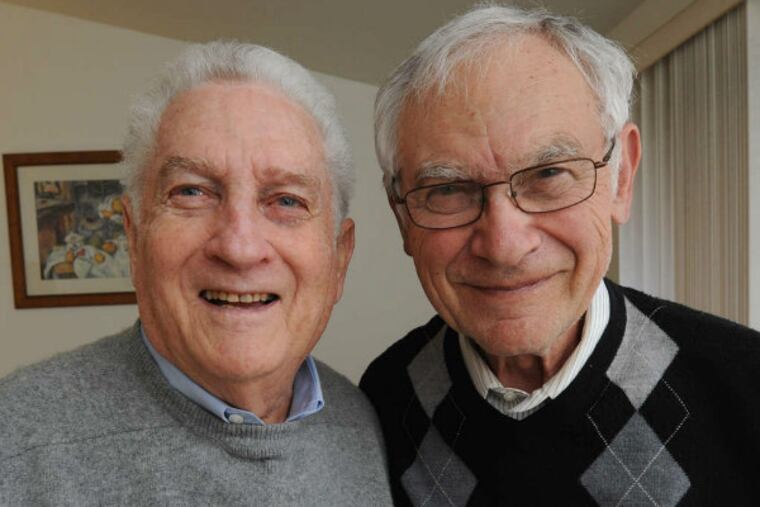To never let the world forget
"All the Dachaus must remain standing. The Dachaus, the Belsens, the Buchenwalds, the Auschwitzes - all of them. They must remain standing because they are a monument to a moment in time when some men decided to turn the Earth into a graveyard. Into it they shoveled all of their reason, their logic, their knowledge, but worst of all, their conscience. And the moment we forget this, the moment we cease to be haunted by its remembrance, then we become the gravediggers."

"All the Dachaus must remain standing. The Dachaus, the Belsens, the Buchenwalds, the Auschwitzes - all of them. They must remain standing because they are a monument to a moment in time when some men decided to turn the Earth into a graveyard. Into it they shoveled all of their reason, their logic, their knowledge, but worst of all, their conscience. And the moment we forget this, the moment we cease to be haunted by its remembrance, then we become the gravediggers."
- Rod Serling, for the "Twilight Zone" episode
"Deaths-Head Revisited"
Chris Gibbons
is a Philadelphia writer
The Americans arrived on a Sunday. It was unseasonably cold for late April. So cold, in fact, that just a few days later a light snow would fall. Ernie Gross, now a Philadelphia resident, was 15 and had just been imprisoned at Dachau that morning. Weak and resigned to his fate, Gross told me last month, he was simply "standing in line outside of the crematory, waiting to die."
A few prisoners on the east side of the compound suddenly noticed a lone American soldier at the edge of a field outside the camp, according to "Dachau Liberated: The Official Report of the U.S. Seventh Army." He was running toward the gate. Then more GIs appeared behind him. Gross was puzzled, but "all of a sudden, the Nazi guard next to us threw down his weapon and started to run."
Excited shouts in disbelieving tones echoed within the walls of the compound in multiple languages: "Americans! Americans!" A prisoner rushed toward the gate but was shot by the Nazi tower guard. Undeterred, more prisoners ran toward the gate. The American soldiers opened fire on the guard tower, and the SS guards surrendered.
"The Americans were not simply advancing; they were running, flying, breaking all the rules of military conduct," wrote Dachau prisoner and Turkish journalist Nerin E. Gun. The soldiers, primarily from the 45th "Thunderbird" and 42d "Rainbow" Divisions, had been told by reporters about the camp. They rushed to liberate it. But nothing could have prepared them for what they found at Dachau.
Philadelphian Don Greenbaum remembers that as his unit approached the camp, the soldiers were stunned to find numerous abandoned railcars that contained thousands of decaying corpses. Once inside the camp, he told me last month, the soldiers were "sickened by the sight of thousands of emaciated prisoners who looked like walking skeletons."
Alex Kershaw wrote in The Liberator that as the soldiers moved through the camp, they found metal poles where naked prisoners had been tied while guard dogs tore into them, a building where prisoners were subjected to sadistic medical experiments, and stacks of bodies left to rot because the SS had run out of coal for the crematory.
Lt. Col. Felix Sparks wrote that "a number of Company I men, all battle-hardened veterans, became extremely distraught. Some cried, while others raged." Kershaw's book described SS guards and prison "informers" being torn apart by the vengeful prisoners. Sparks forcefully stopped some of his enraged troops from executing the guards. Pvt. John Lee said, "I don't think there was a guy who didn't cry openly that night."
Those interned at Dachau between 1933 and 1945 were considered "enemies of the Reich." Ernie Gross said he was there simply because he was a Jew. Prisoners were from more than 20 countries and numerous religious denominations: Catholics, Jews, Protestants, Greek Orthodox, Muslims, and others. Thousands died there, but the exact number will probably never be known. Gen. Dwight D. Eisenhower, concerned that someday people might doubt what happened at the camps, ordered detailed films and photos taken. He asked major newspapers to send representatives so that there would be "no room for cynical doubt."
Unfortunately, as we mark the 70th anniversary of the liberation of many of the camps, Eisenhower's fears have come to fruition. Despite the film records, soldiers' accounts, survivors' recollections, guards' testimony, and physical evidence, there are many around the world who believe the Holocaust never happened or has been greatly exaggerated.
"I cannot understand them," Gross said of the deniers. Greenbaum added: "I was there. I saw it for myself."
Despite all he has been through, Ernie Gross still has faith in humanity. He and Greenbaum often speak together at various events arranged by the Philadelphia Holocaust Awareness Museum. And Sunday they are boarding a plane to Germany for the 70th anniversary liberation ceremonies on Wednesday at Dachau. Gross hopes that his presence there might "change the way people think. Every time you hate somebody, it's not good. It's better to help somebody than hate."